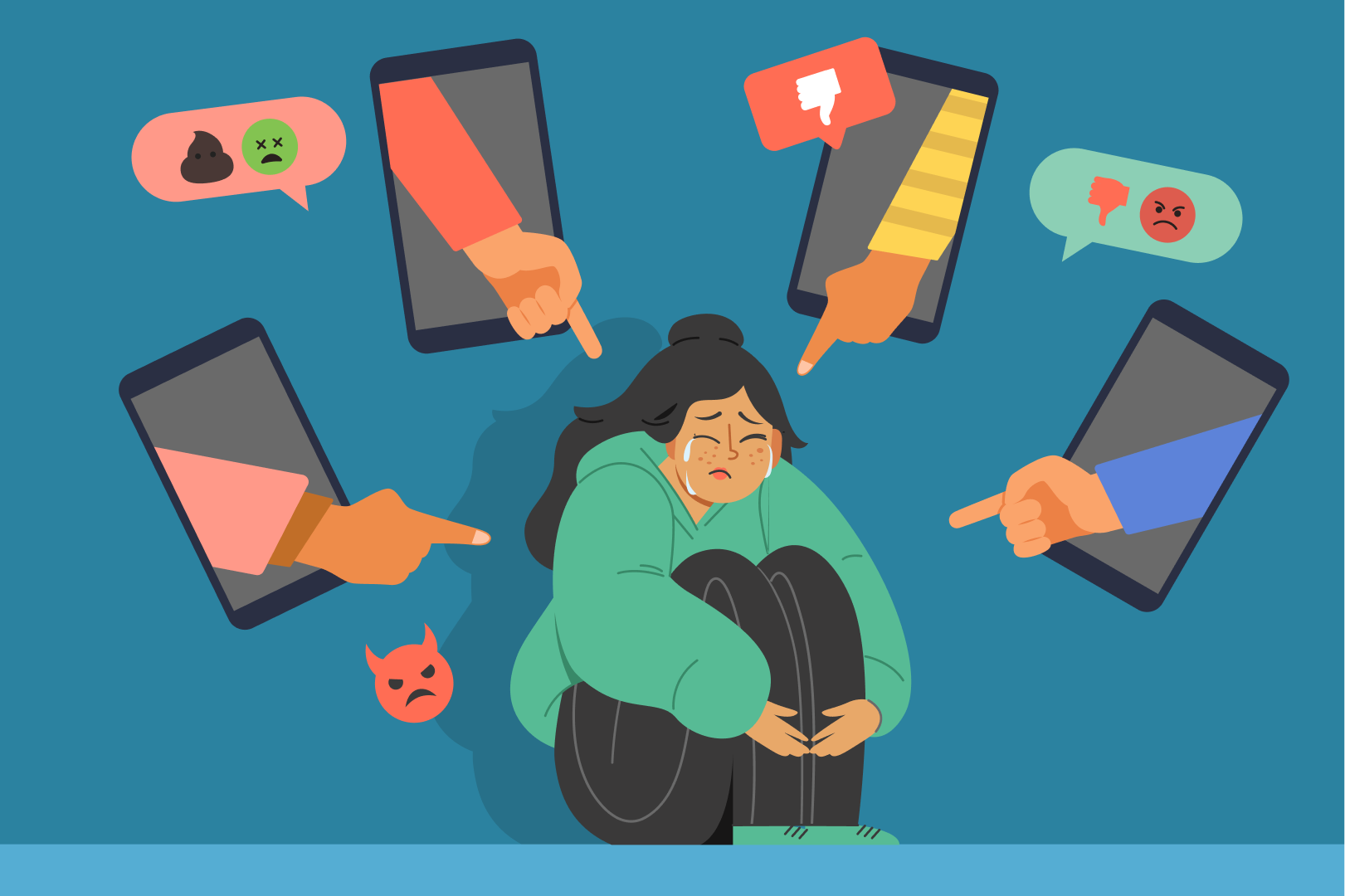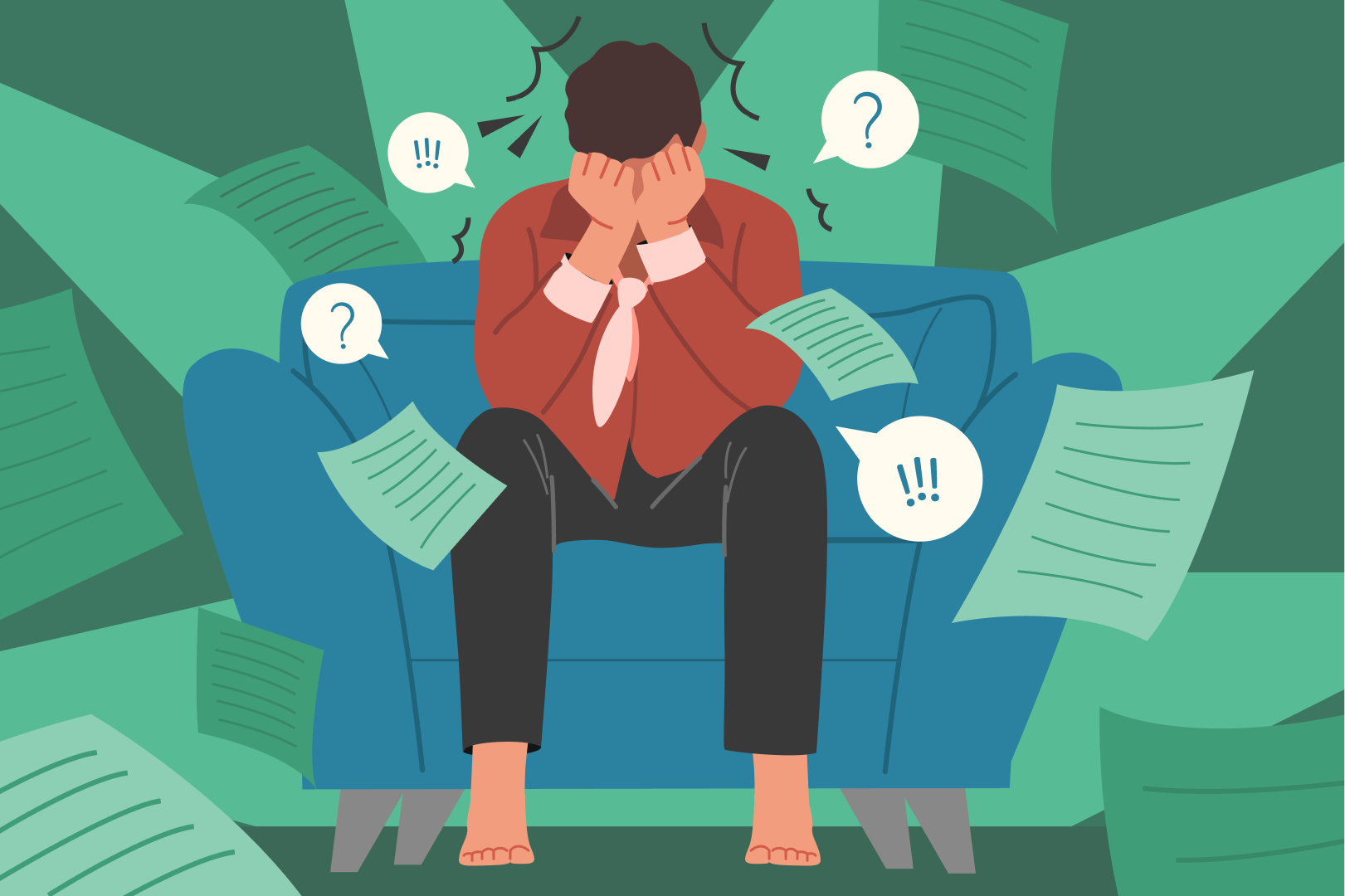‘I’M COPING!”
When someone says that to you, you need to remember that ‘Coping’ actually describes any behaviour helps you to manage the stresses and overwhelming feelings that come with tough situations and be set up with an extremely important skill for life.
Positive coping?
Positive coping strategies increase long-term resilience and wellbeing, while negative coping strategies usually only produce a helpful distraction in the short term. For example, using drugs and alcohol may give you some temporary relief from the difficult emotions you’re experiencing, but reliance on this strategy can lead to substance dependency and abuse. This is why you need to focus on positive coping skills to maintain your long-term wellbeing or resilience.
Be resilient…Be your own Superhero!
Resiliency or your particular Superpower is the ability to ‘bounce back’ from a difficult situation.
You are a resilient person when you are able to:
- withstand adversity
- learn from their experiences
- cope confidently with life’s challenges.
Psychologists have identified some of the factors that make someone resilient including:
- having a positive attitude
- being optimistic
- having the ability to regulate emotions
- seeing failure as a form of helpful feedback.
Resilient teenagers are able to control their emotions in the face of challenges such as:
- physical illness
- change of schools
- transitioning from primary school to high school
- managing study workload and exams
- change in family make-up (separation and divorce)
- change of friendship group
- conflict with peers
- conflict with family
- loss and grief
Resiliency can be taught through practising positive coping skills.
The above images and memes resonate with us as we are currently still in the grip of a global pandemic.
That COVID-19 pandemic has had a major effect on our lives is a truism. We are facing unprecedented challenges that can be stressful, overwhelming, and cause strong emotions in adults and children.
Public health actions, such as social distancing, are necessary to reduce the spread of COVID-19, but they can make us feel isolated and lonely and can increase stress and anxiety. Learning to cope with stress in a healthy way will make not only you, but the people you care about and those around you, become more resilient.
Stress can cause any or all of the following symptoms:
- Feelings of fear, anger, sadness, worry, numbness, or frustration
- Changes in appetite, energy, desires, and interests
- Difficulty concentrating and making decisions
- Difficulty sleeping or nightmares
- Physical reactions, such as headaches, body pains, stomach problems, and skin rashes
- Worsening of chronic health problems
- Worsening of mental health conditions
- Increased use of tobacco, alcohol, and other substances
Don’t be too hard on yourself, know that it is natural to feel stress, anxiety, grief, and worry during the COVID-19 pandemic. Below are ways that you can help yourself, others, and your community manage stress.
Healthy Ways to Cope with Stress
- Take breaks from watching, reading, or listening to news stories, including those on social media. It’s good to be informed, but hearing about the pandemic constantly can be upsetting. Consider limiting news to just a couple times a day and disconnecting from phone, tv, and computer screens for a while.
- Take care of your body.
- Take deep breaths, stretch, or meditate
- Try to eat healthy, well-balanced meals.
- Exercise regularly.
- Get plenty of sleep.
- Avoid excessive alcohol, tobacco, and substance use.
- Continue with routine preventive measures (such as vaccinations, health checkups, etc.)
- Get vaccinated with a COVID-19 vaccine when available.
- Make time to unwind. Try to do some other activities you enjoy.
- Connect with others. Talk with people you trust about your concerns and how you are feeling.
- Connect with your community- or faith-based organizations. While social distancing measures are in place, try connecting online, through social media, or by phone or mail.

Helping Others Cope
If you take good care of yourself , you are better equipped to take care of others. During times of social distancing, it is especially important to stay connected with your friends and family. Helping others cope with stress through phone calls or video chats can help you and your loved ones feel less lonely or isolated.
Mental Health Concerns…Act Now!:
- If you are struggling to cope, there are many ways to get help. Call your healthcare provider if stress gets in the way of your daily activities for several days in a row.
- During times of extreme stress, people may have thoughts of suicide. Suicide is preventable and help is available. More about the risk of suicide, signs to watch for, and how to respond if you notice these signs in yourself or a friend or a loved one, can be found here.
- Free and confidential crisis resources can also help you or a loved one connect with a skilled, trained counselor in your area.
If you are in crisis, get immediate help:
BREAK UPS:
Breaking up is never easy, even if you’re the one initiating the end of the relationship.
First, there are a range of emotions to contend with, some of which may last longer than others. There are also short-term and long-term steps you can take to recover from a breakup so you can move on to healthy, trusting relationships in the future — including a healthy relationship with yourself.
First step to healing: Express your emotions
Expressing your emotions is your first step to recovery. The grieving process can go through its ups and downs, and you could experience sadness one moment and anger the next. Some people might even experience relief.
Acknowledge whatever you’re feeling
A breakup can bring about numerous feelings and stages of emotion. It’s then natural to feel a wide range of emotions such as:
- acceptance (especially immediately after the break up occurs
- Relief
- Shock
- Denial
- Grief
- Rejection
- Pain
- Betrayal
- Fear
- Embarrassment
- sadness
Your Second Step: Try these short-term steps
Working through your feelings is just the first step to coping with a breakup.
As hard as it might seem in the beginning, you’ll want to take the following steps to ensure your emotional, mental, and physical safety immediately following a breakup:
Find ‘you’ again
When you’ve been in a relationship, especially long-term, it can be easy to forget yourself. It can be difficult to focus on the positives of coming out of your relationship right now, but you can learn to embrace this time as an opportunity for self-exploration.
Are there any activities you’ve always wanted to try, or places to travel and eat that you couldn’t before? Now’s the time to consider doing these things.
Consider finding professional support with a therapist
Also called talk therapy, sessions with a psychotherapist can help you work through your emotions while also finding ways to cope. Consider finding a therapist who specializes in relationship recovery.
Stay socially active
At times, the grief of a breakup may be so strong that you end up being alone. Group support and individual support with friends and family is important. Try not to isolate yourself during this delicate time. Those closest to you can help you vent but also show you that you’re loved and supported — always.
Focusing on your social relationships now can also help strengthen your romantic relationship skills in the future. Experts believe that staying social is linked to decreased depression and a longer life.
Rearrange your living situation
Sometimes, a breakup means one or both individuals moving out of a previously shared living space. On top of the stress of moving, the emotional toll can raise even more if you and your partner shared pets or children in your relationship.
Also, depending on your living arrangements, you might need to consider financial support to make up for any lost income that you and your partner previously shared. Don’t be afraid to reach out to loved ones or friends to explore options such as temporary housing until you get on your feet again.
Your Third Step : Focus on long-term recovery
In the long-term, healthy recovery from a breakup often depends largely on the following factors:
Your mental health
Grief is a process, and one that doesn’t have a definitive timeline. You may need to take a bit longer to grieve after a breakup.
Allowing yourself to process your new life circumstances is essential to your overall mental health.
You can also take care of your mental health during a breakup by making sure you stay socially and physically active. This can help decrease the pain and depression that you may be experiencing.
Self-care techniques
Self-care is always important, especially post-breakup. The adage that you “need to take care of yourself in order to take care of others,” definitely applies to interpersonal relationships. By investing time in self-care long term, you’ll build a healthy relationship with yourself that will then transfer over to your relationships.
Re-establishing trust
Depending on the circumstances surrounding your breakup, it can be challenging to trust others again. Without re-establishing trust though, you can potentially have problems with partners in the future.
Building trust can take time, and a therapist can recommend strategies for re-establishing trust in your relationships.
How you handle new relationships
For some people, it’s tempting to ease the pain of a breakup by entering a new relationship. However, “rebounding” isn’t always wise, as it can negatively impact your new relationship.
Give yourself enough time to grieve and fully process your emotions before moving on. This time can of course vary from person to person.
So, What’s the Takeaway for you?
- Whether your breakup is one-sided or mutual, ending a relationship is never an easy process.
- During moments of high stress or sadness, it’s important to keep in mind that this stage of your life will eventually come to pass. Also remember that most people go through a breakup at least once in their lifetime, so you’re in good company if you want to reach out to friends and family for emotional support.
- If you’re ever at a point where coping with a breakup is becoming so difficult that your mental health is suffering, it may be time to see a therapist if you haven’t already done so.
- Above all else, be kind to yourself and treat your breakup as the process that it is.
https://www.healthline.com/health/coping-with-break-up#short–term-steps
Family, friends, aspirations & hopes is what a soul lives for.
Research also indicates that when students feel supported and loved by their parents, they can be more relaxed at mind and focused towards their goals. Parents play the biggest role in our development. They play an important role in our mental, physical, social, financial and career developments.. But what happens when our parents pressurize us with their high hopes. How do we deal with their expectations?
What do we mean when we talk of pressure and stress caused by our parents?
Did you know that India has one of the highest suicide rates among teenagers and adults between the ages of 14 and 29?
. 1) Psychological impact on children
One of the highest suicide rates amid teenagers and adults is in India! Failure in examinations is among the top 10 reasons for suicide in the country while family problems fall in the top three. The common reasons for these tragedies are failure in examinations, high expectations and pressure coming from parents.
Even in cases where suicide is not on the child’s mind, due to parental pressure– the very people who are charged with nurturing and caring for the child – it may lead to a number of psychological issues that manifest in different stages of youth and adulthood.
With the high profile growth in the fields of sports and entertainment as high-income businesses in India, most people have turned their focus towards these fields.
Most parents still are unable to ward off the need to pursue academics constantly. Because of the inevitable competition in every field, parents push their children to become all-rounders with the result children end up as victims.
3) Academics vs Sports vs Arts
Failure to recognize learning disabilities like dyslexia and seeing academic failure to be the end of life are the two biggest failures of the modern parenting and education system.
The activities which are imperative for growth and de-stressing in children are those of sports and physical activities. Instead of inspiring enthusiasm of children for these activities, Competitive parents make it worse with shaming kids and comparing them to others.
Dance, arts, music, sports and other activities are brilliant choices to inspire the creativity in children. They teach focus, discipline and teamwork in them. Unfortunately, parental pressure has turned these enjoyable activities into competitive events resulting in immense stress on children.
What can you do to deal with parental pressure?
- Try to put some distance between you and the rest. If you’re living in the same house with your parents or grandparents and you see them every day, it’s hard not to succumb to their pressure. Make moving out at priority, save the money it takes and do it.
- Realize you don’t need to please your family. There is this false belief that because your family is, well… your family, you must get along perfectly with every family member. You don’t..
- Learn to communicate assertively. Assertive communication is one the most valuable people skills you can have. It allows you to express yourself in a vivid, direct way, but from a position of respect for others, and it’s a great way to deal with all the criticizing and negative comments you can get from family members which are not happy with your actions. Learn to put your point forward . Be clear with what you want.You matter.
- Ask for help. It’s not always important to do everything on your own . You can ask for help, guidance, supervision from anyone you feel comfortable to talk to . It doesn’t always have to be your family member, it could be anyone – an older friend, a mentor, your teacher or a counselor.
https://feeljoy.in/blog/stressors/how-to-deal-with-the-stress-caused-by-parental-pressure/
The desire to fit in and feel like you are part of a group is normal, and most people feel this way sometimes, especially in the teen and young adult years.
Peer pressure, that feeling that you have to do something to fit in, be accepted, or be respected, can be tough to deal with. It can be overt (i.e., friends telling you to do something) or less direct (e.g., friends joking around about your not doing what they are doing, seeing others drinking and feeling left out if you don’t, knowing a friend tried cigarettes/gutka and feeling curious about it).
While peer pressure can be helpful at times (e.g., recognizing that your friends are studying more than you are as a motivator for you to work harder, noticing that your drinking is more extreme than your friends’ and deciding to cut back), it can also cause you to do things you may not be sure about, or even things that you don’t really think are right for you. Dealing with this pressure can be challenging, but it’s important to reflect on your own personal values and preferences and make decisions based on those rather than on peer pressure.
Managing peer pressure is usually not that difficult if you are only surrounded by people whose values, preferences, and behaviors are similar to yours. However, in a college environment, it’s very likely that you will meet people with a wide variety of attitudes and behaviors. At times, it may feel easy to know where you stand and act accordingly, but at other times, you might feel confused, pressured, or tempted to act against your own judgment.
What’s more, college may be a time when you are away from home and family with more freedom to make your own choices than before. You might even feel a desire to do things your family doesn’t do or doesn’t think are alright as a way to establish your own identity and try new things. Again, it’s important to reflect on what you think is important, your values, and who you want to be. It’s also good to try and think ahead to potential consequences of an action. If you go with the crowd and do something you might not have considered before, what will happen? Could there be a negative outcome? Could you feel bad about yourself for acting against your values or judgment? All important considerations!
When it comes to pressures around alcohol and other tobacco/drug use, something else to think about is that most students overestimate how many of their peers drink or use drugs. The truth is that many fewer college students drink or use drugs than people assume. Knowing the facts can help you to resist pressures based on the idea that “everyone is doing it” and that you must party to fit in.
When faced with overt or indirect pressure to do something you’re not sure about, try using the following strategies:
- Give yourself permission to avoid people or situations that don’t feel right and leave a situation that becomes uncomfortable. Work on setting boundaries. It’s OK for you to do what is best for you.
- Check in with yourself. Ask, “How am I feeling about this?” “Does this seem right to me?” “What are the pros and cons of making this decision?”
- Recognize unhealthy dynamics: It’s not OK for others to pressure, force, or trick you into doing things you don’t want to or for others to make threats if you don’t give in. It’s not OK for others to mock, belittle, shame, or criticize you for your choices. You can ask others to stop these behaviors, or you can choose to avoid spending time with people who act in these ways.
- Spend time with people who respect your decisions and won’t put unfair pressure on you to conform.
- Remember that you can’t (and don’t have to) please everyone or be liked by everyone. This can be hard to accept, but it helps to try.
- When people or situations that make you feel pressured are not avoidable, try the “delay tactic”: Give yourself time to think about your decision instead of giving an immediate answer: “Let me think about that,” “Can I get back to you?” or “Check back with me in an hour.”
- When you can’t avoid or delay a pressure-filled situation, practice saying “No thanks” or just “No!” If “no” feels uncomfortable, practice using other responses, such as “Not today,” “Maybe another time,” or “Thanks, but I can’t.”
- It’s OK to use an excuse if the truth is too challenging. For example, if someone offers you a drink and you want to say’ no’ but feel awkward, say you’re on medication or have to get up early the next day.
- Take a friend who supports you along if you are going to be in a pressure-filled situation and let them know what your intentions are (e.g., “I don’t want to drink, so if you see me about to, remind me that I wanted to stay sober”).
- Stand up for others when you see them being pressured. “Bystander intervention” (stepping in to help out when you see someone in trouble) can be an effective way to support others and send a message. If you don’t feel comfortable directly confronting the person doing the pressuring, try distracting them or inviting the person being pressured to do something else (e.g., “Hey, come to the ladies room with me” or “Let’s go over there and take a selfie”).
- Ask for advice or support from a parent or other trusted family member, `person, a mentor, or a counselor if you need it.
Financial stress can stem from being in debt, not earning enough money,not having enough pocket money,
If you can reduce your financial worry, you will be able to focus on other important areas of your life and relax, knowing you have a plan to handle your financial situation. Here are a few things you can do now to relieve your financial stress and make it easier to function each day.
Create a Budget
You may feel overwhelmed and think that a budget is only going to add to your financial stress, but it is the best tool you have to get control of your finances and stop worrying about money.
A budget allows you to decide when and how you are going to spend your money. This spending plan makes sure you cover your immediate expenses, while still working toward your savings goals. The first few months of planning and sticking to a budget are the most challenging, but once you understand what to do, you can often reduce the amount of time you spend on it, and in turn, reduce the amount of time you spend worrying about money.
Get an Emergency Fund
An emergency fund is a savings account meant to cover unexpected expenses and financial emergencies.Building an emergency fund may seem tough at first, especially if you are struggling to make ends meet each month. Start by putting aside a small amount, whether it’s 100 each month, so you can build up your emergency fund.
Get Outside Help
If you are really struggling with getting a handle on your budget and spending issues, do not be afraid to get outside help. You can take classes on basic money management and investing, which will help you plan out a budget and do the things you need to succeed financially.You can also take financial classes that coach you through budgeting and other aspects of your personal finances.
Determine What You Can Change
If you are having financial issues, you may have an income issue, a spending issue, or a combination of the two. If you know that you do not make enough money to keep up with your current bills, decide what you can do to change the situation. It may include options such as going back to studying to qualify for a higher paying job.
If you think you have a spending problem and it’s a compulsive behavior, you may want to attend a specialized group or get professional help dealing with the issues you are facing. Once you have a plan that will help you change your situation permanently, you should be able to reduce your stress.
Track Your Progress
While this may sound like it’s not a solution to your financial problem, it can make a big difference in the amount of stress you feel each day.
Find positive aspects of your financial situation by tracking your progress toward your financial goals. Looking at the positive aspects of your current financial situation can also help alleviate stress.
Remember, you can change your financial situation and you will find it easier to do if you are not living in an anxious state all of the time.
Sources:
What Is Resilience? Definition, Types, Building Resiliency, Benefits …
Profiles of Coping Strategies in Resilient Adolescents – SAGE Journals
Resilience and coping strategies in adolescents – ResearchGate








